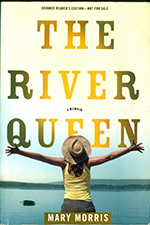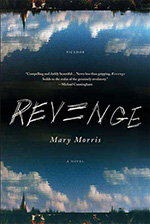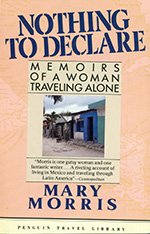
Yesterday I was leaving Milwaukee, heading back to New York. I'd spent a rather difficult weekend, visiting family, and I was ready to get home. I checked in and had a little time to kill. Not that much, but enough for a glass of wine.
I stopped in at the Brewhouse, but the bar was kind of full. I jockied a bit for position. Then a nice young man with glasses who was reading a book made room for me. He gestured to a chair beside him and I settled in. As I ordered my Pinot Grigio, I noticed that he was reading a very old book of poetry. I could see that its pages were tattered; its binding was leather.
As he sipped his Scotch and chased it with a beer, I couldn't help but comment. "That's a very old book you're reading," I said.
The young man nodded and told me that he'd just picked it up at the unusually fine used book store, "Renaissance Books," that sits in the middle of Milwaukee airport. I never actually know what that bookstore is doing there, but, to the delight of my husband and me, it sells a lot of fine, rare editions - even as it sits beside the Harley Davis memorabilia store with a Starbucks across the way. Whenever I have a lot of time to kill at this airport, I usually spend it in that store. "I like poetry," he said.
We chatted a bit about books and travel. He told me he likes to pick up books wherever he goes. I glanced at the beautifully engraved leather binding, the crumbling yellowed pages. He wondered if it might be a first edition. The thought struck me as well. "You should have it appraised," I told him. "It might be worth something." I told him how my daughter, Kate, had picked up a very rare Gustave Doree illustrated Don Quixote at a stoop sale and it turned out to be quite valuable.
He turned to the frontespiece where the date "1860" had been written in by hand. "Yes," he mused, "You're probably right." He paused. "But I'm going to keep this one." I watched as he fondled the leather cover, protected by an acetane jacket.
"You're right. I think you should."
Somehow we got to talking more about travel and reading and languages and how much he wanted to learn more languages and how he was interested in art and sculpture. Whenever he had time on his hands, which wasn't that often, he looked at art. I asked him where he was going and he said he was going to Delaware to visit his mother. He hadn't seen her in many months because he had been deployed for the past nine months.
"Army?" I asked.
"No, I'm a Marine," he told me.
"Oh, that's great," I replied, turning back to my wine. Then I looked at him again. "Isn't it kind of unusual for a Marine to be reading Shelley?"
He smiled at me, "Yes, it is..." Then he began to talk, telling me how he's a geek Marine. How he's always loved poetry and art (and how he wants to write poetry which didn't come as a surprise). He'd been on Okinawa for the past year. It was a dry, dusty place. I asked him if he'd seen action. "No. I'm an aviation electrician." My mind wandered to St. Exupery - the war pilot who was also a writer. He wrote The Little Prince, of course. The plane he went down in in l943 has recently been recovered.
We spoke a little longer - about keeping journals. I told him that I was a writer and I always kept a journal with me. He asked how he could get his poetry published. I told him to read "Best American Poetry" and send poems to the magazines listed in the back.
He thanked me. "I'm a warrior," he said. "I'm supposed to have a warrior mentality, but I'm conflicted...I'm not sure."
"You should write about that," I told him. I mentioned Stephen Crane, Wilfred Owen, Enri Remarquee, Tim O'Brien. The chroniclers of war. There's a precedent, I told him. And I don't know whose writing about this now.
He smiled. "I will," he told me. "I'm going to write about that..."
I realized I was late. Very late for my plane. We shook hands. His palm was moist, sweaty. A sign of nervousness, I believe. I didn't ask his name and he didn't ask mine as I dashed off, wondering if he'd start sending out his poems. If I'd read a memoir from a conflicted warrior someday...
I raced towards security, begged my way towards the front of the line, put my shoes and belt back on in the area Milwaukee called the "Recombobulation Area" which I loved. I ran to the jetway where I narrowly made my flight. As I tumbled into my sea, the words rushed through my brain...
"My name is Ozymandias, king of kings:
Look on my works, ye Mighty, and despair!"
Nothing beside remains. Round the decay
Of that colossal wreck, boundless and bare
The lone and level sands stretch far away.[1]
Perhaps one day my marine will write something like that...
It was one of those chance encounters we have on the road every day. At a cafe in Rome, on a ferry dock in Honduras. You meet someone and share with him something about where you've been, where you're going. A word of advice, or warning might make all the difference. We never know if we've helped a person move past despair, out of doubt into hope. As I said to my friend, Susan, yesterday afternoon, we never know if we've helped someone find a path.
On the flight the woman beside me was sharing a huge bucket of fried chicken with her son. Across the aisel an enormous woman with a woven pink scarf wrapped around her head sang hymns all the way to New York. I didn't really mind. I thought about my Marine. I wondered if our chance encounter would make a difference in his life. He'd made a difference in mine.
















